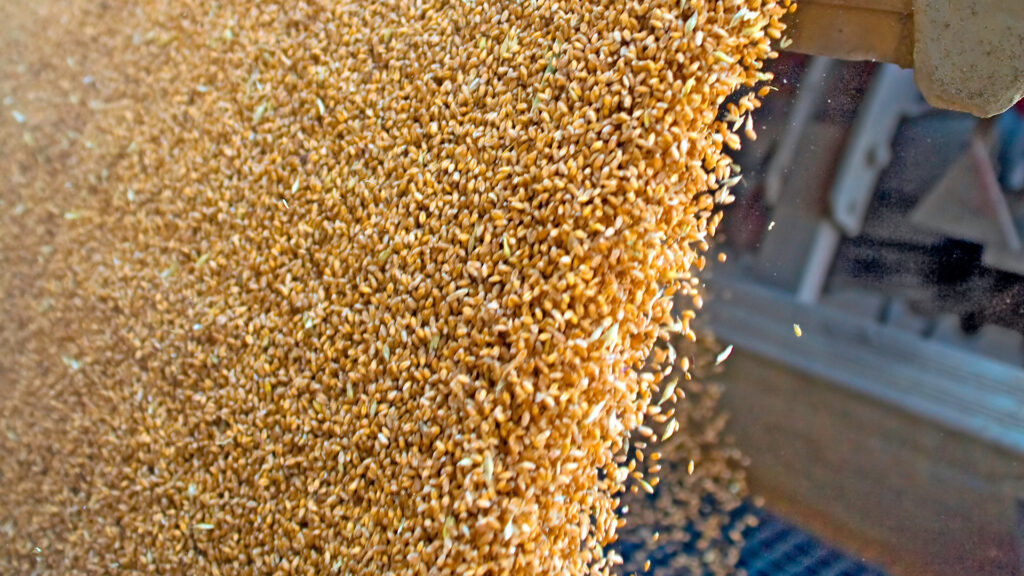
COVID-19 judgment update: South Africa and Australia
COVID-19 business interruption claims have been very much in the news lately. In terms of industry-wide class actions, the UK’s Financial Conduct Authority (FCA) has been leading the way with its test case, judgment in which was handed down on 15 September 2020 (the FCA Test Case Judgment).
More recently, the FCA Test Case Judgment has been appealed directly to the Supreme Court, which is likely to hand down its judgment either before Christmas or in January 2021. In the meantime, we have been watching the progress of other court actions around the world. In this article, we focus on two recent decisions, one in South Africa and one in Australia.
(1) Ma-Afrika Hotels (Pty) Ltd (2) The Stellenbosch Kitchen (PTY) Ltd v Santam Limited, a division of which is Hospitality and Leisure Insurance – Case No: 6499/2020
Background
On 17 November 2020, the High Court of South Africa (Western Cape Division, Cape Town) handed down its judgment in Ma-Afrika v Santam, finding in favour of the policyholders (the Applicants).
In brief, the claim related to business interruption losses suffered by the policyholders as a result of the impact of COVID-19 and related restrictions imposed in South Africa.
The policyholders had the benefit of insurance cover, which included an Infectious Disease extension providing cover for, amongst other things:
Loss as insured by this Section resulting in [from] interruption or interference with the Business due to…
a) …
b) Notifiable Disease occurring at the Premises or attributable to food or drink supplied from the Premises
c) …
d) Notifiable Disease occurring within a radius of 40 kilometres of the Premises
e)…
“Notifiable Disease” was defined as “illness sustained by any person resulting from: (ii) Any human infectious or human contagious disease an outbreak of which the competent local authority has stipulated shall be notified to them”.
The policyholders sought cover for losses arising out of cancellations of reservations at their premises in early March 2020; a period of closure at one of the insured premises due to a case of COVID-19 being identified at the premises from mid-late March 2020; and finally the nationwide lockdown commencing from 27 March 2020.
Insurers rejected the majority of the claims (admitting cover only for the losses arising out of the closure of the insured premises following discovery of a case of COVID-19 at the premises itself). Insurers argued that the policyholders’ losses were not proximately caused by local occurrences of a Notifiable Disease within the stipulated 40 kilometre radius of the business premises but were rather due to the wider lockdown, the government response and the general public response to COVID-19. Insurers also argued that no specific exclusion was required; the policies simply did not respond to cover general economic hardship.
Judgment
The Court ultimately found in favour of the policyholders. In so doing, in addition to South African case law (including the Café Chameleon1, issued in June 2020), plus jurisprudence from around the world, the Court considered the reasoning of the High Court in the FCA Test Case Judgment in some detail. In particular:
- The Court identified that the infectious diseases extension under consideration was similar to the “Disease clause” category of cover identified by the High Court, which covered notifiable diseases that are, “by their nature, diseases that entail a government response, or at least the risk of a government response”. The Court held that it was of “great significance” that the wording of the extension in Ma-Afrika v Santam was similar to wording considered in the FCA Test Case Judgment.
- The Court was persuaded by the reasoning of the High Court that the insured peril was a composite peril that by its nature could occur both inside and outside a defined area. Properly construed, the Court held that the subject policy did not require the loss to have arisen solely due to an infectious disease within the relevant area.
- The Court was also satisfied that in properly applying the principles of construction and in finding that the insured peril was a composite one, factual and legal causation would be established. This related to the finding by the High Court that, in these circumstances, correctly identifying the insured peril would also establish which “matters” would be separate, non-insured, causes distinct from the insured peril i.e. the exercise of construction would determine which elements were part of the insured peril and therefore had the necessary causative effect.
- The Court went on to find that “It is evident that a notifiable disease and government response is inextricably linked due to the public health risk imperatives” and that “it therefore, appears to be a logical conclusion that the only textual-and purposeful – interpretation of the clause is that the insured peril covers Covid-19 and the government’s response to Covid-19”.
- On the application of the trends clause, Insurers had sought to rely on the position set out in Orient-Express2, which, in context, Insurers argued allowed for a narrow interpretation of the insured peril. The Court was also persuaded by the High Court’s analysis as to the Orient-Express decision and ultimately reached a similar conclusion as to the application of the trends clause, namely that no part of the insured peril should be taken into account in quantifying the loss (although the Court did not touch on the still-live issue of the continuing effect of pre-”trigger” elements of the composite peril). In the context of the subject extension, the Court found that the correct counterfactual was a world without COVID-19.
It is clear that the FCA Test Case Judgment is already having a very real impact in jurisdictions around the world. Policyholders, insurers and practitioners alike are eagerly anticipating the outcome of the appeal in what will hopefully be a further step towards certainty in these extremely uncertain times.
HDI Global Specialty SE v Wonkana No. 3 Pty Ltd [2020] NSWCA 296
Background
Judgment on a test case brought by the Insurance Council of Australia (ICA) and the Australian Financial Complaints Authority (AFCA) was handed down on 18 November 2020. In this ICA/AFCA test case, the full bench of the NSW Court of Appeal considered the application of certain infectious diseases exclusions in business interruption insurance policies.
This test case considered the question of whether policy exclusions which exclude claims caused by “quarantinable diseases” as defined in the Quarantine Act 1908 (Cth), and subsequent amendments, apply in respect of COVID-19 claims.
The ICA contended that most insurers have never contemplated coverage for pandemics in their policies, and did not price pandemic risks into premiums. However, the Quarantine Act was repealed and replaced by the Biosecurity Act 2015 (Cth) and the Biosecurity Act does not use the term “quarantinable diseases”.
Judgment
The Court in a 5-0 unanimous judgment dismissed proceedings seeking declarations that business interruption caused by COVID-19 was excluded from coverage under two example business interruption insurance policies.
The defendants were insured under policies issued by the plaintiff insurers. Each policy contained an extension providing cover for interruption or interference caused by outbreaks of infectious diseases within a 20 kilometre radius of the insured’s premises. Both policies excluded cover for “diseases declared to be quarantinable diseases under the Quarantine Act 1908 (Cth) and subsequent amendments”.
In 2016, well before either the period of cover for either policy commenced, the Quarantine Act was repealed and replaced by the Biosecurity Act. Unlike the Quarantine Act, the Biosecurity Act did not include or refer to the term “quarantinable diseases”. Instead, the Biosecurity Act provided for diseases to be determined to be a “listed human disease”. Not surprisingly, as the Quarantine Act was repealed in 2016, COVID-19 was never declared to be a quarantinable disease under the Quarantine Act. On 21 January 2020, COVID-19 was determined to be a listed human disease under the Biosecurity Act.
The insurers denied the defendants’ claims under the disease extensions on the basis that the words “diseases declared to be a quarantinable disease under the Quarantine Act 1908 (Cth) and subsequent amendments” should be understood as extending to “diseases determined to be listed human diseases under the Biosecurity Act”. Accordingly to insurers, this was because either:
- The Biosecurity Act was a “subsequent amendment” of the Quarantine Act; or
- The references to the Quarantine Act were obvious mistakes which should be construed as if they were or included references to the Biosecurity Act.
The Court rejected both arguments.
In respect of the first argument, the Court held that the meaning of the words “and subsequent amendments” was unambiguous, and did not extend to legislation replacing (rather than amending) the Quarantine Act.
Whilst there were some differences in reasoning between the five judges, the Court also unanimously dismissed the second argument.
Bathurst CJ and Bell P held that ordinary principles of construction were not so flexible as to permit the exclusions to be read, contrary to the actual words used by the parties and their ordinary meaning, as referring to “diseases determined to be listed human diseases under the Biosecurity Act”.
Meagher JA and Ball J proceeded on the basis that the parties did not know of the repeal and replacement of the Quarantine Act at the time the policies were issued. They held that the Court, therefore, could not have regard to the fact of the repeal to identify a mistake in the parties’ language.
Hammerschlag J did not find that a mistake was established and he held that, although the repeal of the Quarantine Act had the consequence that there would be no subsequent declarations of quarantinable diseases, that did not make the language in the exclusions absurd or constitute an obvious mistake:
“Allowing for a static and certain, rather than a moving, list cannot be said to be unworkable or absurd. It is not obvious that the parties intended to pick up replacement legislation.”
Next steps
On the day of the judgment, the ICA stated that it “will urgently review the determination and specifically the grounds on which it could seek special leave to appeal against the decision to the High Court of Australia”.
Subsequently, on 19 November 2020, the ICA also stated it is in discussions with the AFCA, insurers and other stakeholders to consider a further test case that explores outstanding policy matters, including proximity and prevention of access, relating to the pandemic and business interruption insurance.
In respect of timing, the ICA stated that the Australian insurance industry “seeks to progress a court resolution of these matters quickly, and regardless of any decision around an appeal on the first test case” and that the ICA “will provide an update on these matters as soon as they are settled in coming weeks”.
Separate to this process, various Australian class action law firms have also indicated recently that they may bring class actions on behalf of policyholders who have business interruption losses as a result of COVID-19. There are also claims on behalf of policyholders in respect of COVID-related business interruption losses where proceedings have already been brought in the Australian Courts (with judgments expected later this year or in 2021).
For further information, please contact:
Thomas Neighbour
Senior Associate, Dubai
T +971 4 423 0515
E thomas.neighbour@hfw.com
Brendan McCashin
Partner, Melbourne
T +61 (0)3 8601 4527
E brendan.mccashin@hfw.com
Jonathan Bruce
Partner, London
T +44 (0)20 7264 8773
E jonathan.bruce@hfw.com
Richard Jowett
Partner, Melbourne
T +61 (0)3 8601 4521
E richard.jowett@hfw.com
Sam Wakerley
Partner, Dubai
T +971 4 423 0530
E sam.wakerley@hfw.com
Footnotes
- Café Chameleon CC v Guardrisk Insurance Company Ltd (5736/2020) [2020] ZAWCHC 65 (26 June 2020).
- Orient-Express Hotels Limited v Assicurazioni General Spa (IUK) (t/a Generali Global Risk) [2010] EWHC 1186 (Comm)








-1024x576.jpg)